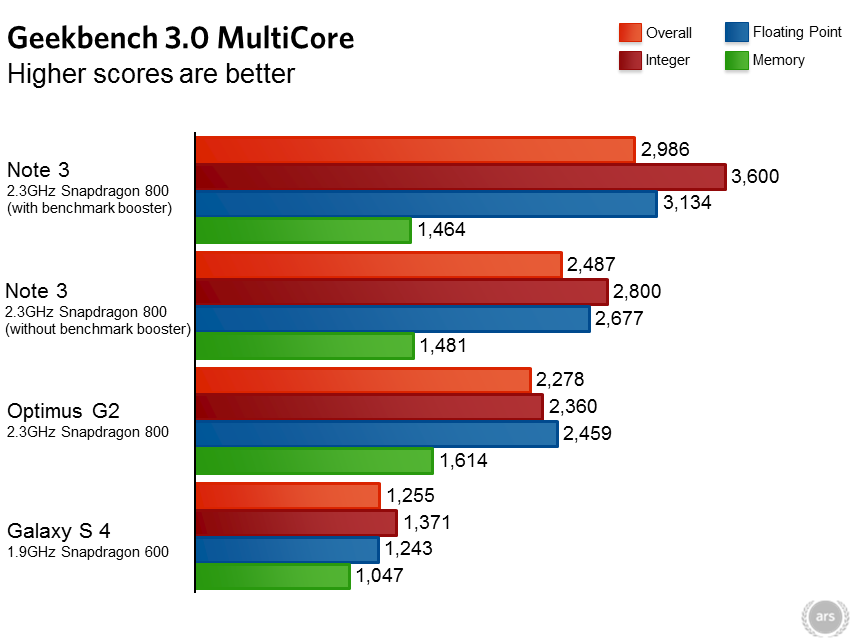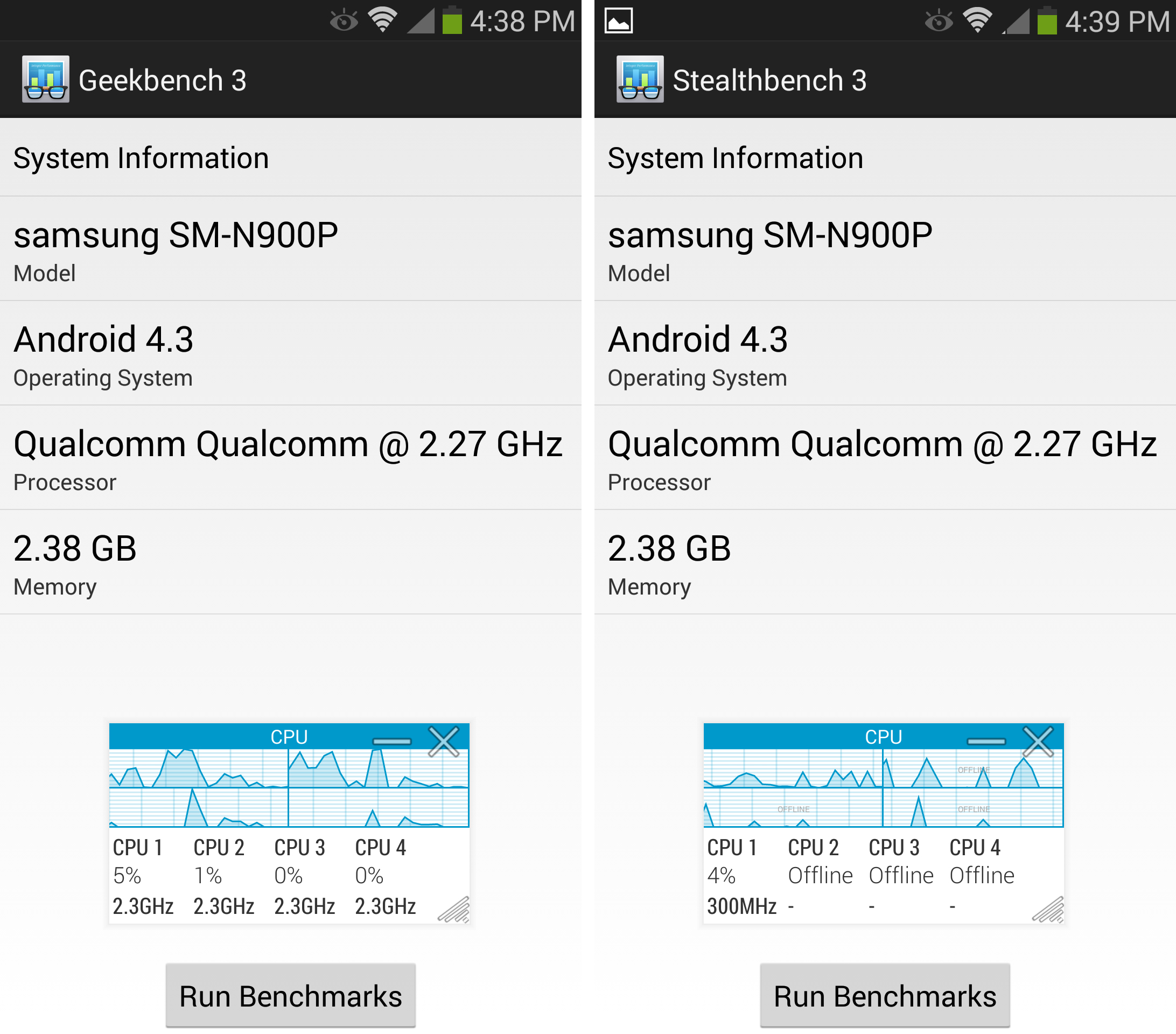Va mai aduceti aminte de articolul de acum cateva saptamani de zile in care v-am spus ca Samsung creste pe moment viteza procesoarelor smartphone-urilor sale high-end doar cand sunt rulate benchmark-uri in ideea de a genera iluzia ca smartphone-urile sale au performante nemaipomenite? Daca da, atunci va spun ca, din pacate, coreenii nu au invatat intre timp sa fie onesti atat cu proprii clienti, cat si cu restul lumii, iar in Samsung Galaxy Note 3 au folosit exact aceleasi tehnici pentru a oferi un spor de performanta de pana la 20% in benchmark-uri, fara de concurenta, dar acele performante sunt inexistente in lumea reala.
We noticed an odd thing while testing the Samsung Galaxy Note 3: it scores really, really well in benchmark tests—puzzlingly well, in fact. A quick comparison of its scores to the similarly-specced LG G2 makes it clear something fishy is going on, because Samsung’s 2.3GHz Snapdragon 800 blows the doors off LG’s 2.3GHz Snapdragon 800. What makes one Snapdragon so different from the other? After a good bit of sleuthing, we can confidently say Samsung appears to be artificially boosting the US Note 3’s benchmark scores with a special, high-power CPU mode that kicks in when the device runs a large number of popular benchmarking apps. Samsung did something similar with the international Galaxy S 4’s GPU, but this is the first time we’ve seen the boost on a US device.
Comparand rezultatele Note-ului cu cele ale LG G2, cei de la arstechnica au descoperit ca, desi utilizeaza exact acelasi procesor, terminalul Samsung are performante mult mai bune si atunci s-au gandit ca la mijloc ar putea fi o problema. Stiind modul in care “lucreaza” Samsung, ei ai descoperit ca nuclee procesorului sunt folosite la capacitate maxima, fara posibilitatea de a intra in idle, in momentul in care o aplicatie de benchmarking este activa. In mod normal doar unul dintre cele 4 nuclee ale procesorului ar fi activ si tactat la 300 MHz, nu la 2.3 GHz, insa multumita “ingineriei” Samsung, toate 4 nucleele sunt tactate la viteza maxima si nu se pot dezactiva atunci cand o aplicatie de benchmarking este rulata.
Problema este ca aplicatiile de acest gena r trebui sa testeze performantele smartphone-ului in utilizarea sa normala si nu cu toate nucleele tactate la viteza maxima, deoarece smartphone-ul nu va functiona tot timpul asa. Problema pentru Samsung este ca terminalul lor n-ar fi oferit performante foarte mari in fata competitorilor, iar aplicarea unei strategii de succes, precum cea a mintitului, i-a ajutat sa ajunga unde sunt, asa ca de ce nu ar continua?


















